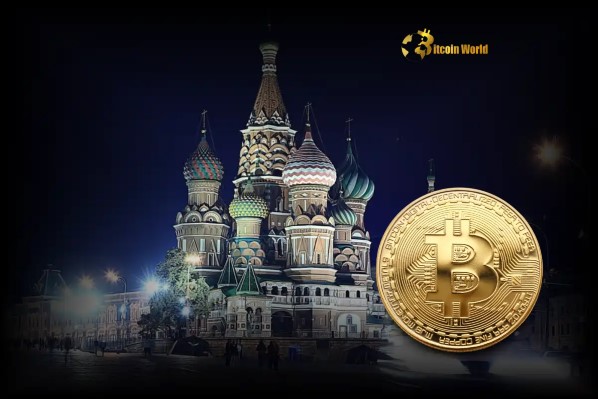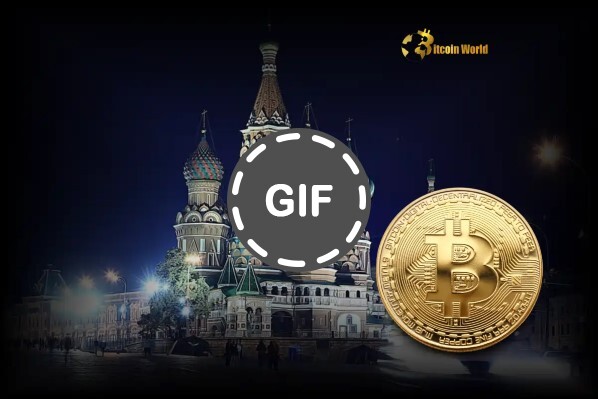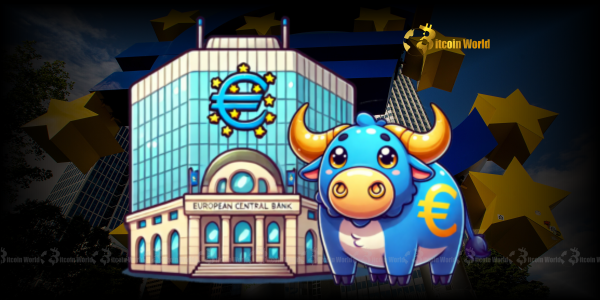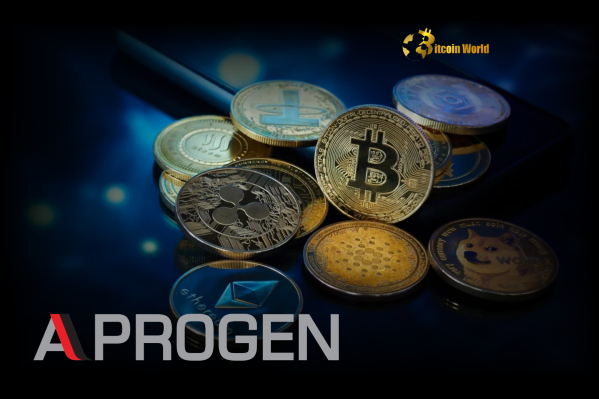BitcoinWorld

Moscow Exchange Unlocks Bitcoin Futures Trading for Qualified Investors
Big news shaking up the finance and cryptocurrency worlds! The Moscow Exchange, Russia’s largest stock exchange, has officially launched trading in Bitcoin Futures. This development, initially reported by Bitcoin Magazine on X, marks a significant step for crypto derivatives within a major traditional financial market, specifically targeting Qualified Investors.
For many keeping an eye on the evolving landscape of the Russia Crypto Market, this move represents a notable shift. While Russia’s stance on cryptocurrencies has often been cautious or even restrictive, allowing regulated Crypto Trading products like futures on its main exchange signals a potential warming, or at least a pragmatic approach to managing crypto exposure within the traditional financial system.
What Does the Moscow Exchange’s Bitcoin Futures Launch Mean?
The launch of Bitcoin Futures on the Moscow Exchange isn’t just another product addition; it’s a strategic move with multiple implications. Futures contracts are derivatives that allow investors to speculate on the future price of an asset without owning the underlying asset itself. In this case, investors can bet on the future price movements of Bitcoin.
Here’s a breakdown of why this is significant:
- Legitimization: Offering a crypto-linked product on a major national exchange like the Moscow Exchange lends a degree of legitimacy and institutional acceptance to Bitcoin, even if only for derivatives.
- Access to Regulated Trading: It provides a regulated venue for Russian investors to gain exposure to Bitcoin’s price swings, potentially attracting capital that might otherwise remain on the sidelines or seek less regulated offshore platforms.
- Risk Management Tools: Futures can be used for hedging. Businesses or investors with exposure to Bitcoin can use futures to lock in prices and mitigate potential losses from price volatility.
- Increased Liquidity: A regulated futures market can contribute to price discovery and potentially increase liquidity for Bitcoin, impacting the broader Crypto Trading environment connected to the Russian market.
However, it’s crucial to understand that this isn’t retail spot trading. The access is limited, which brings us to the next key point.
Who Exactly Are These Qualified Investors?
The decision to restrict Bitcoin Futures trading to Qualified Investors is standard practice in many jurisdictions when introducing complex or volatile instruments. In Russia, the definition of a qualified investor typically includes:
- Large financial institutions (banks, brokers, investment companies).
- Certain state corporations.
- Individuals meeting specific criteria related to wealth, investment experience, or professional qualifications.
This limitation serves a regulatory purpose, aiming to ensure that only sophisticated market participants with the knowledge and financial capacity to understand and bear the risks associated with derivatives like Bitcoin Futures are participating. It keeps the product out of reach for the average retail trader for now, highlighting a cautious, phased approach to integrating crypto assets into the traditional financial system within the Russia Crypto Market.
Understanding Bitcoin Futures in Crypto Trading
For those new to derivatives, understanding Bitcoin Futures is key to appreciating this development. A futures contract is an agreement to buy or sell an asset at a predetermined price at a specific time in the future. Unlike buying Bitcoin directly (spot trading), you are trading contracts based on Bitcoin’s price.
Here’s a simple comparison:
| Feature | Bitcoin Spot Trading | Bitcoin Futures Trading |
|---|---|---|
| Asset Traded | Actual Bitcoin | Contracts based on Bitcoin’s price |
| Ownership | You own the Bitcoin | You own a contract, no direct ownership of Bitcoin |
| Purpose | Investment, holding, transacting | Speculation, hedging, price exposure |
| Leverage | Typically none (unless on specific platforms) | Commonly used, magnifying potential gains and losses |
| Regulation | Varies widely by platform/jurisdiction | Often occurs on regulated exchanges |
Futures markets are often characterized by leverage, allowing traders to control a large contract value with a smaller amount of capital (margin). This can lead to significant profits but also substantial losses, making them suitable primarily for experienced investors, which aligns with the Moscow Exchange’s decision to target Qualified Investors.
Impact on the Russia Crypto Market
The introduction of Bitcoin Futures on the Moscow Exchange could have several effects on the domestic crypto landscape. Russia has historically had a complex relationship with cryptocurrencies, with varying degrees of regulation, sometimes leaning towards outright bans on certain activities.
This move suggests a potential shift towards allowing regulated access points for professional investors. It could:
- Attract Institutional Capital: Provide a familiar, regulated environment for Russian institutions hesitant to engage with unregulated crypto platforms.
- Influence Regulatory Discussions: The presence of crypto derivatives on a major exchange might influence future regulatory decisions regarding spot markets or other crypto activities.
- Increase Awareness: Bring cryptocurrencies further into the mainstream financial conversation within Russia.
While it doesn’t open the floodgates for retail crypto adoption via traditional exchanges, it certainly adds a new, significant dimension to the Russia Crypto Market.
What Are the Potential Benefits and Challenges?
Launching Bitcoin Futures offers both opportunities and hurdles.
Benefits:
- Enhanced Market Infrastructure: Integrates crypto exposure into established, regulated financial infrastructure.
- Hedging Opportunities: Provides a tool for businesses and investors to manage price risk.
- New Revenue Streams: For the Moscow Exchange and participating brokers.
- Increased Sophistication: Develops the financial market by offering complex derivative products linked to a modern asset class.
Challenges:
- Regulatory Uncertainty: Despite this step, the overall regulatory framework for crypto in Russia remains complex and subject to change.
- Market Volatility: Bitcoin’s price is notoriously volatile, which can lead to significant risks in leveraged futures trading.
- Limited Access: Restricting to Qualified Investors means the broader public cannot participate directly through this venue.
- Liquidation Risks: High leverage in futures trading can lead to rapid liquidations if the market moves against a position.
Navigating these challenges will be crucial for the success and stability of the new offering on the Moscow Exchange.
Actionable Insights for the Future
For those monitoring the global crypto landscape, this development is a signal:
- Watch Russian Regulation: This move might precede or influence further regulatory clarity or changes regarding crypto within Russia.
- Observe Trading Volume: Monitor how much trading activity the Bitcoin Futures contract generates on the Moscow Exchange. High volume would indicate significant institutional interest.
- Compare to Other Markets: See how this contract’s performance and structure compare to existing Bitcoin futures offerings on exchanges like CME (Chicago Mercantile Exchange) or regulated platforms elsewhere. This provides context for the maturity and integration of crypto into global finance.
- Understand the ‘Qualified Investor’ Filter: Recognize that this is a controlled integration, not a full embrace of retail crypto trading by the traditional exchange sector in Russia.
This development is a piece of a larger puzzle regarding how traditional financial markets are interacting with cryptocurrencies. The Moscow Exchange’s decision reflects a global trend among major exchanges to explore or offer crypto-linked products, often starting with derivatives and limited to professional participants.
Summary: A Strategic Step for Russia and Crypto
The launch of Bitcoin Futures trading for Qualified Investors on the Moscow Exchange is a significant, albeit cautious, step for the integration of cryptocurrencies into Russia’s traditional financial system. It provides a regulated avenue for sophisticated market participants to gain exposure to Bitcoin’s price movements through Crypto Trading derivatives. While not opening the door for retail investors on the main exchange, it signals a pragmatic approach within the Russia Crypto Market and adds another data point to the ongoing story of crypto’s convergence with global finance. It will be interesting to observe the volume and impact of this new offering on the Moscow Exchange and the broader crypto ecosystem.
To learn more about the latest crypto market trends, explore our article on key developments shaping Bitcoin institutional adoption.
This post Moscow Exchange Unlocks Bitcoin Futures Trading for Qualified Investors first appeared on BitcoinWorld and is written by Editorial Team





